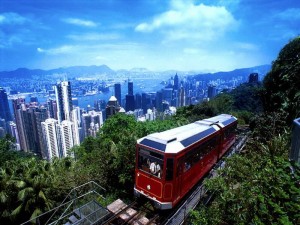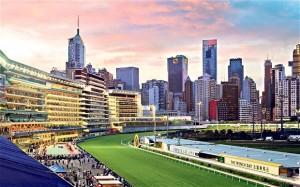Travel
Eclectic Hong Kong
Chaotic in its own way, the land of martial arts, Hong Kong has a lot to offer for fun-lovers.
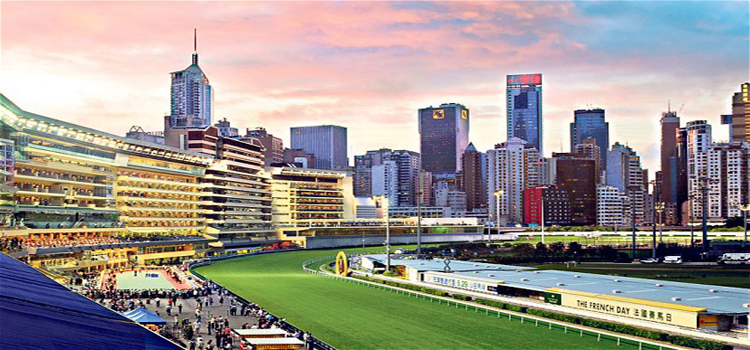
 Hong Kong has known colonization from the Chinese, Japanese and British imperial rule; the region has experienced a revolutionary era inspired by the Cultural Revolution in China. Enclosed by the Pearl River Delta and South China Sea, Hong Kong is also known as “Pearl of the orient”. Amid soaring towers there are ancient rituals, vibrant cultural scene born from the influences of its Chinese roots and colonial connections. Hong Kong is a world city and has all the elements of one: phenomenal energy, smog, constant noise, and millions of people crammed between its profusion of skyscrapers. But it also has hushed temples, quiet park corners, and is surrounded by idyllic island oases.
Hong Kong has known colonization from the Chinese, Japanese and British imperial rule; the region has experienced a revolutionary era inspired by the Cultural Revolution in China. Enclosed by the Pearl River Delta and South China Sea, Hong Kong is also known as “Pearl of the orient”. Amid soaring towers there are ancient rituals, vibrant cultural scene born from the influences of its Chinese roots and colonial connections. Hong Kong is a world city and has all the elements of one: phenomenal energy, smog, constant noise, and millions of people crammed between its profusion of skyscrapers. But it also has hushed temples, quiet park corners, and is surrounded by idyllic island oases.
Getting In
Hong Kong maintains a separate and independent immigration system from that of mainland China. This means that, unlike mainland China, most visitors do not need to obtain visas in advance. However, it means that a visa is still required to enter mainland China from Hong Kong.
By plane
Hong Kong International Airport
Hong Kong International Airport which is also known as Chek Lap Kok is the main port for visitors to get to Hong Kong.
By bus
There are three types of bus available in Hong Kong, operated by a multitude of companies. Signs in English can be sparse and finding your bus stop can get difficult. Buses are pretty much your only option for travelling around the south side of the island and Lantau.
By taxi
Taxis are plentiful, clean and efficient. They are extremely cheap compared to many other large cities. There are three types of taxi in Hong Kong: red, green and blue classified on the basis of fare. The red or the urban taxis serve all areas of New Territories, Kowloon and Hong Kong Island. The green which is the second most expensive, serve only parts of the New Territories, including Sha Tin, Tuen Mun, Yuen Long, Fanling, Sheung Shui, Pak Tam Chung, Tai Po etc. Lantau taxi or the blue taxis run exclusively on southern Lantau Island, Tung Chung, the Airport and Disneyland, thus they are restricted to a small area.
Things to do
Looking down at the city from this famous vantage point, you’ll see one of the finest harbors on Earth and a skyline so improbable, audacious and lofty that Manhattan’s looks provincial by comparison. Beyond the mountains to the north of the city, the rest of China simmers and strains. Everything you’ve heard about Hong Kong’s restlessness and energy is dramatically reaffirmed by the view from the Peak.
Charter a Junk
Everyone thinks of Hong Kong as a city, but in fact it is a sprawling archipelago of 260 islands. If you have never seen their rugged coastlines or deserted coves, hire “junks”, local ships that are sturdy and sail long distances. Load a picnic and a cool-box of beer and wine, and set off through the scattered islets.
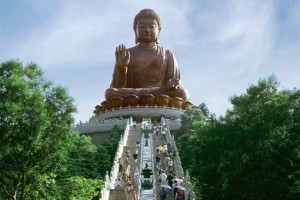
Lantau Island and Giant Buddha
Get spectacular views of Lantau Island, and visit the Giant Buddha at Po Lin. The statue reaches more than 111 feet (34 meters) high, making it the world’s largest seated, outdoor Buddha.
Happy Valley Racecourse
An outing at the races is one of the quintessential Hong Kong things to do, especially if you happen to be around during one of the weekly Wednesday evening races here. The punters pack into the stands and trackside, cheering, drinking and eating, and the atmosphere is electric.
St Andrew’s Anglican Church
Hidden on the top of a knoll between the Former Kowloon British School and the Hong Kong Observatory, is a charming building in English Gothic style. It is Kowloon’s oldest Protestant church and is dedicated to the patron saint of Scotland. Built in 1905 in granite and red brick, the church was turned into a Shinto shrine during the Japanese occupation.
Stay
Four Seasons Hotel ($620 per night)
The Four Seasons arguably edges into top place on the island for its amazing views and its location close to the Star Ferry, Hong Kong station, the inland and Sheung Wan. It also features palatial rooms and a glorious pool and spa complex. Its restaurants, Lung King Heen and Caprice, both have three Michelin stars.
W ($ 375 per night)
W features uber-stylish interiors created by an Australian and a Japanese designer, with rooms named ‘wonderful’, ‘spectacular’, ‘fantastic’…which are in fact, quite wonderful and spectacular, especially with the views from the 36th floor and up.
Courtyard by Marriott ($172 per night)
This hotel juggles luxury with limited space and it works. Most rooms offer harbor views and are smartly decorated with modern furnishings. The plump beds and high-thread-count sheets guarantee you a good night’s sleep. Service is impeccable.
Things to Know
Medical services
The standard of medical care in Hong Kong is generally excellent but expensive. Always take out travel insurance before you travel. In the case of an emergency, all ambulances (999)
Public Transportation options are many and are extremely convenient. Tourists are recommended to purchase an Octopus Payment Card, available for prices ranging from HKD 150 to a maximum of HKD 1000. It is useful for payment on public transportation, vending machines and even some local food joints.
Travel
Travel Wellness: Staying Healthy and Fit While Exploring
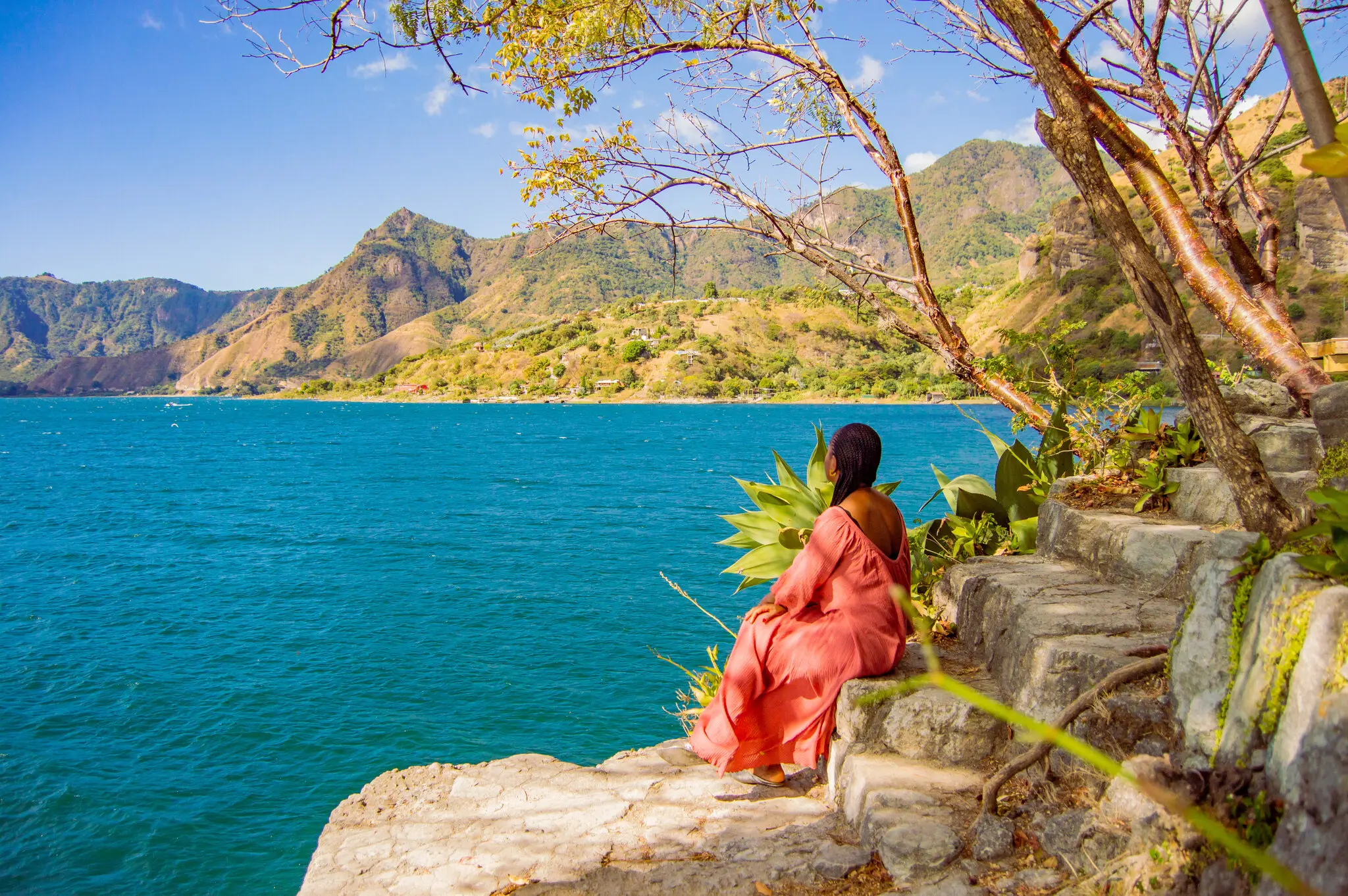
Travelling is an enriching experience that broadens horizons and creates lasting memories. However, maintaining your health and fitness while on the road can be a challenge. Whether you’re navigating busy city streets, lounging on a beach, or embarking on an adventure, staying well and fit is crucial for enjoying your travels to the fullest. Here are some practical tips to help you stay healthy and active while exploring new destinations.
Plan Your Travel Meals
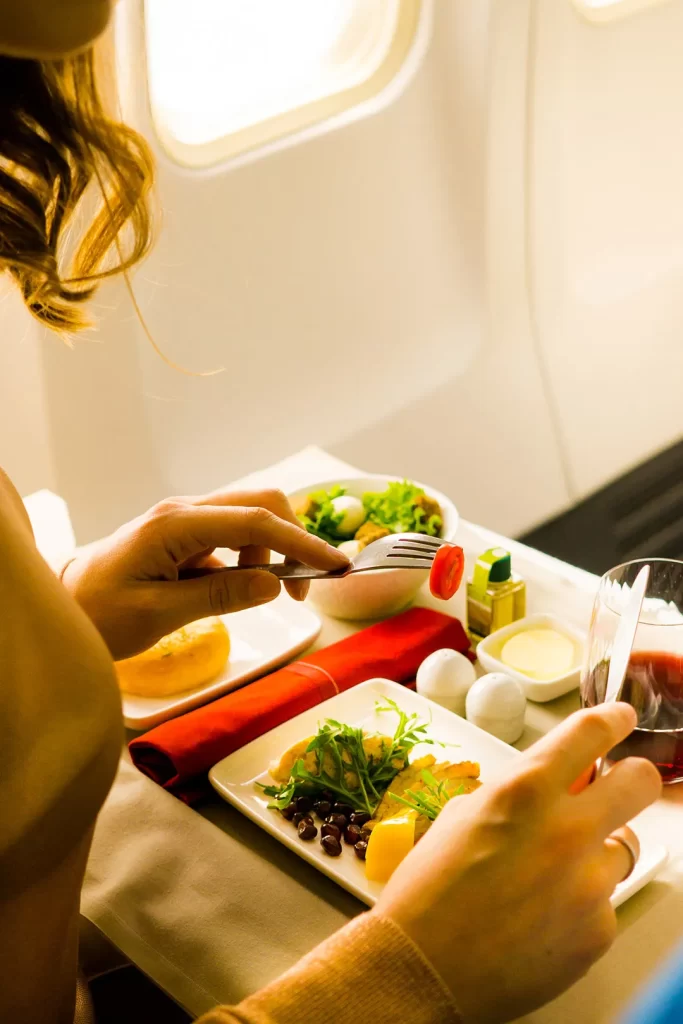
Eating healthy while traveling can be challenging, but with a little planning, it’s entirely achievable. Research local cuisine before your trip and seek out restaurants or markets that offer nutritious options. Opt for meals that include plenty of fruits, vegetables, lean proteins, and whole grains. If you’re staying in a place with a kitchen, consider preparing some of your meals to maintain control over ingredients and portions.
Stay Hydrated
Travel can easily disrupt your hydration routine. Always carry a reusable water bottle and refill it regularly. Drinking enough water helps with digestion, energy levels, and overall well-being. If you’re traveling to a place with different water quality, consider bringing a portable water purifier or sticking to bottled water.
Incorporate Physical Activity
Finding time to exercise while traveling can be tough, but it’s essential for maintaining your fitness and energy levels. Here are a few ways to stay active:
- Use Hotel Gyms: Many hotels offer fitness centers. Utilize these facilities to keep up with your workout routine.
- Explore on Foot: Walking or biking around your destination not only provides exercise but also allows you to experience the city’s sights more intimately.
- Outdoor Activities: Take advantage of local outdoor activities such as hiking, swimming, or even a beach workout.
Maintain a Sleep Schedule
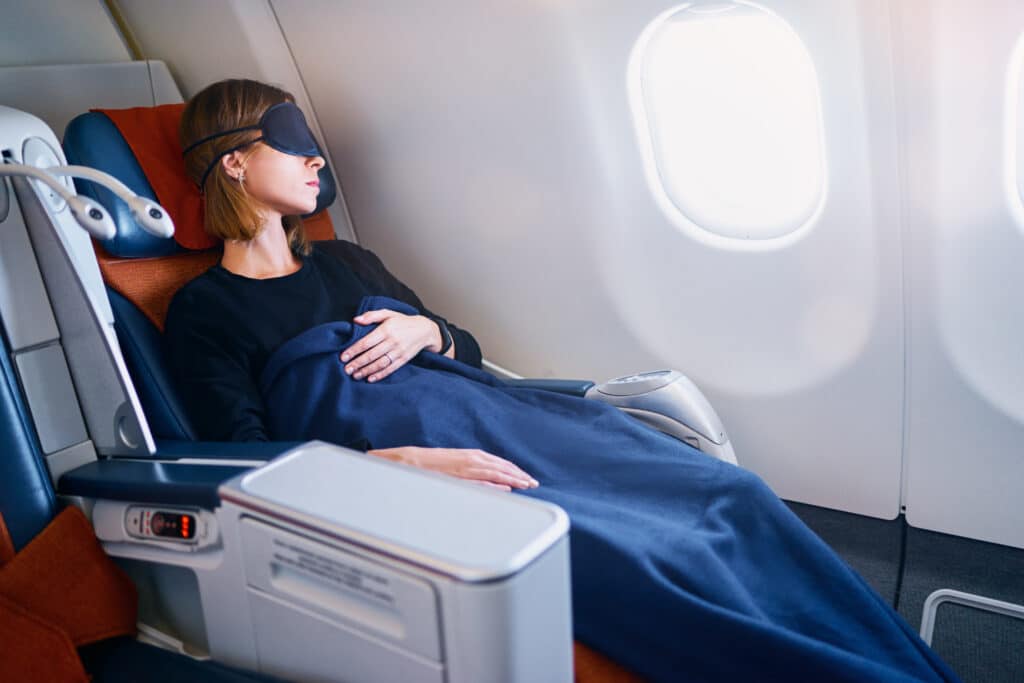
Traveling at first class. Flight with comfort. Pretty young woman sleeping in airplane.
Adjusting to new time zones can disrupt your sleep pattern, which affects overall health. Try to maintain a regular sleep schedule by setting consistent bedtimes and wake-up times. Creating a relaxing bedtime routine, such as reading or listening to calming music, can also help you wind down and improve sleep quality.
Practice Mindfulness and Stress Management
Travel can be exciting but also stressful. Incorporate mindfulness practices such as meditation, deep breathing exercises, or yoga to manage stress and maintain mental well-being. Many travel destinations offer wellness retreats or classes where you can participate in mindfulness activities.
Pack a Travel Health Kit
Prepare a travel health kit with essentials like vitamins, medications, and first-aid supplies. Include items such as hand sanitizer, travel-sized disinfectant wipes, and any prescription medications you may need. Having these on hand can help prevent illness and manage minor health issues.
Stay Active During Travel
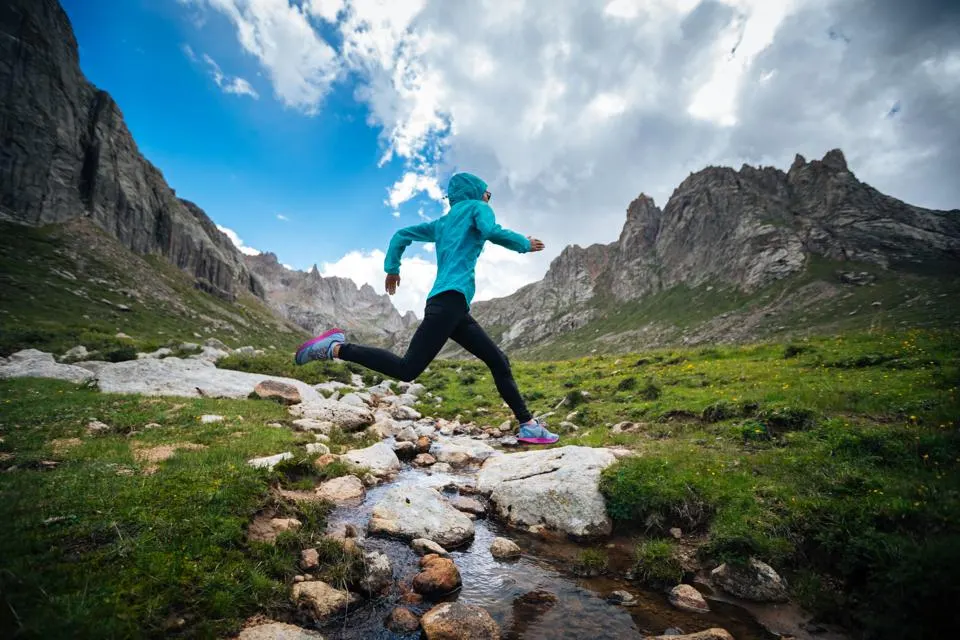
Long flights or car rides can lead to stiffness and discomfort. Take breaks to stretch or walk around every few hours. Simple exercises like seated leg lifts, neck stretches, and shoulder rolls can help improve circulation and reduce muscle tension.
Adopt Local Wellness Practices
Explore and embrace local wellness practices and traditions. Whether it’s a traditional Thai massage, Japanese hot springs, or Ayurvedic treatments in India, incorporating local wellness practices can enhance your overall travel experience and contribute to your well-being.
Avoid Overindulgence
While it’s tempting to indulge in local delicacies, moderation is key. Balance indulgent meals with healthier options and be mindful of portion sizes. Enjoying treats in moderation allows you to savor local flavors without compromising your health goals.
Stay Social and Connected
Social interactions and maintaining connections with loved ones can boost mental health and overall happiness. Make time to connect with fellow travelers, locals, or family and friends back home to keep your spirits high and your travel experience fulfilling.
By integrating these wellness tips into your travel routine, you can ensure a healthier and more enjoyable journey. Staying active, eating well, and managing stress will help you feel your best and make the most of your travel experiences. Safe travels and happy exploring!
Travel
Real House of the Dragon Location You Want to Visit
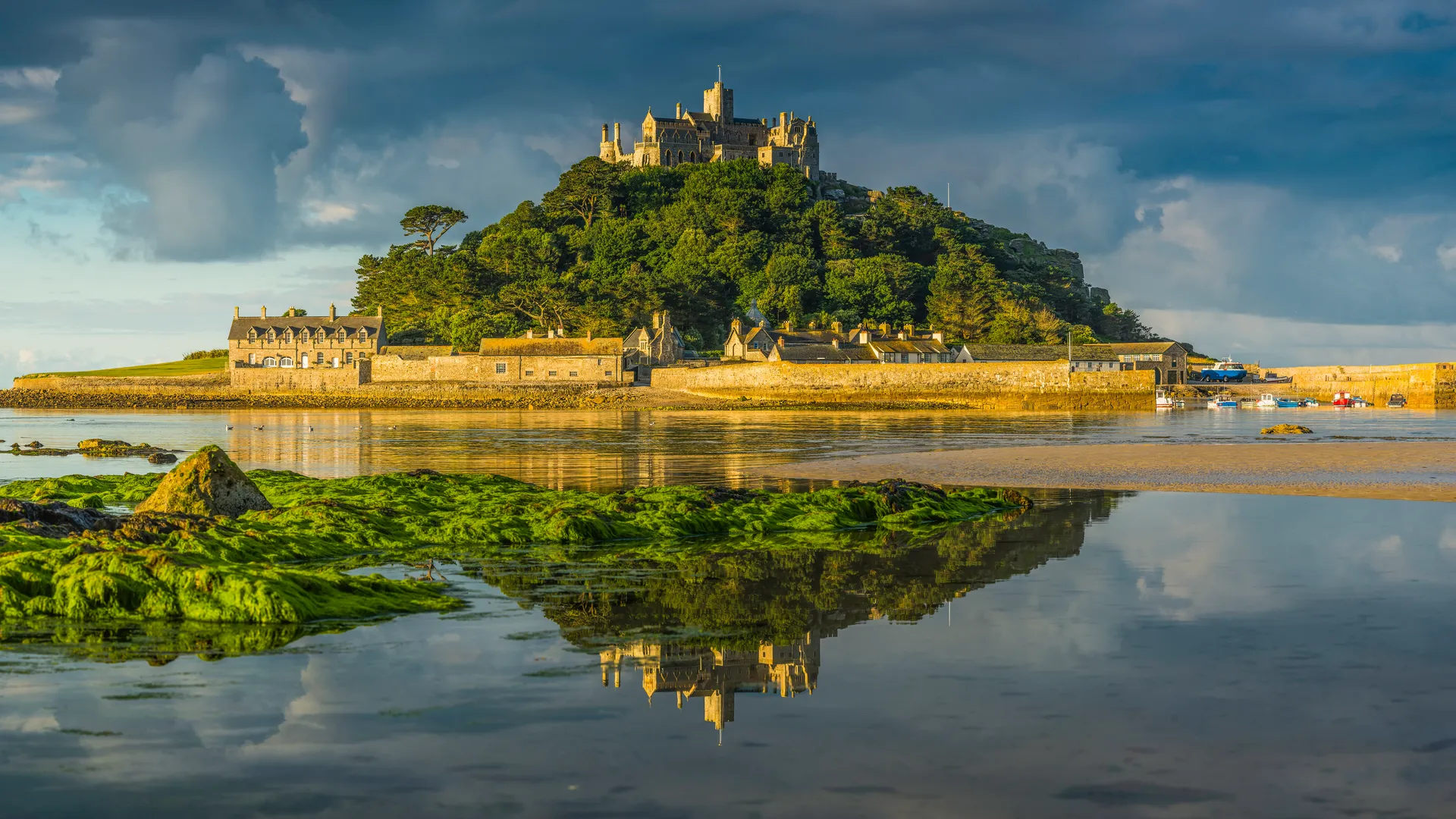
Returning to Westeros for the battle between the Blacks and Greens in “House of the Dragon” season two. A civil war within the House of Targaryen over who should inherit the Iron Throne is the subject of the television drama series, which is based on George R. R. Martin’s Fire & Blood and takes place two centuries before Game of Thrones. Along with other important members of the season one ensemble, Olivia Cooke as Alicent Hightower, Emma D’Arcy as Rhaenyra Targaryen, and Matt Smith as Daemon Targaryen are returning for the presently running second season.
We can’t wait to explore all of the amazing filming locations that this series has brought us. Considering how rich the universe is, it makes sense. Rather than depending solely on computer-generated scenery and soundstages, several of the actual filming locales contribute to the world of Westeros’ distinctive atmosphere.
Here, a guide to House of the Dragon filming locations you can visit:
Castleton, Derbyshire, England

In the first season of the show, Castleton, a village in high-peaked Derbyshire with one of the oldest lead mines, was transformed into The Vale of Arryn. Those who watch Game of Thrones would recall this as the location of House Arryn and the Eyrie, a stronghold where adversaries can be driven to their deaths via a moon portal. The region, which was once inhabited by Celtic people, is well-known for its traditional English hamlets and the limestone valley of Cave Dale, which is located inside the national park.
St. Michael’s Mount in Mount’s Bay, Cornwall, England
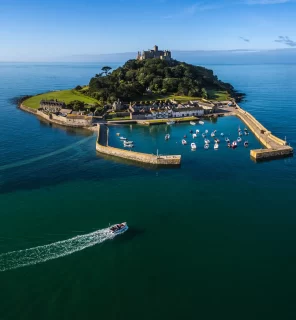
St. Michael’s Mount is a rocky tidal island with a 12th-century mediaeval church and a small, intimate village connected to the island of Marazion by a causeway that visitors can cross on foot during low tide. Blackwater Bay, a sizable body of water at Kings Landing’s edge, is home to House Velaryon, the fictional Driftmark of House of the Dragon, which is housed in the island’s main fortress. A prior appearance of Driftmark occurred in the Battle of the Blackwater in Game of Thrones.
La Calahorra, Granada, Spain

Reimagined as Pentos, one of the cities bordering the seas of Westeros, the imaginary continent at the heart of the world of Game of Thrones, is the municipality La Calahorra in eastern Granada. At the base of the Sierra Nevada mountain range, on the solitary hill in the region, lies a mediaeval fortress known as Castillo de La Calahorra, one of the region’s most iconic monuments. The exterior of the castle, which serves as the seat of House Targaryen on House of the Dragon, defies the rules of Gothic design, making it one of the first buildings in Spain to be influenced by the Renaissance between 1509 and 1512. Its exquisite split-level interior features a centre courtyard, four corner towers, and marble.
Cáceres, Extremadura, Spain
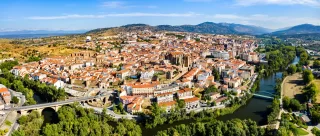
The province of Cáceres, in western Spain, is a veritable time capsule. Ancient structures that date back hundreds of years nevertheless look substantially the same, displaying a variety of architectural influences, such as Roman, Moorish, and Gothic. Several locations in the region were used to film the King’s Landing sequences, including the walled city of Plasencia in season one, Trujillo in season two, and the capital city of Cáceres in both seasons.
Bourne Wood in Farnham, England

Bourne Wood was the location of one of the largest fight scenes from season two of House of the Dragon. Large clearings in the forest make it perfect for expansive combat scenes and large film crews, while the absence of newer, more contemporary buildings or power lines gives the location a timeless sense. According to London Cult’s documentation, the forest was outfitted with a tent camp and certain areas were covered in artificial snow. The woodland is about an hour’s drive away, making the setting very handy for films like House of the Dragon that are headquartered out of the Warner Bros. Leavesden studio.
Gaztelugatxe, Basque Country, Spain
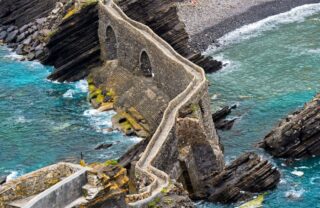
An island in Biscay called Gaztelugatxe has a hermitage that goes back to the tenth century. The iconic stone bridge was used for filming House of the Dragon. In season seven, the islet served as a stand-in for Dragonstone during filming for Game of Thrones. the location of the initial season’s encounter between Rhaenyra and her dragon on Dragonstone Bridge.
Travel
Essential Summer Travel Bag Must-Haves
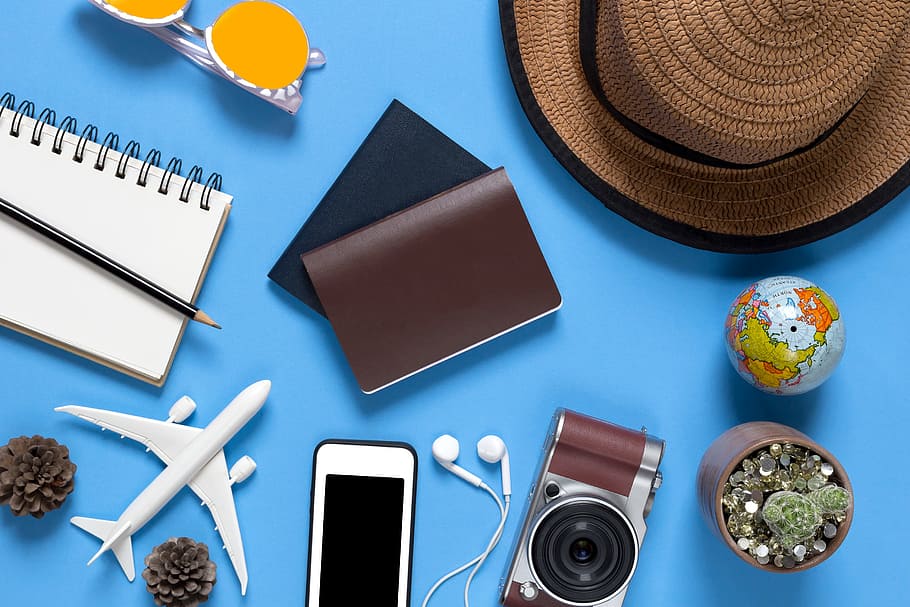
As the summer sun beckons, it’s time to dust off your travel bags and embark on exciting adventures. Whether you’re jetting off to exotic destinations or exploring hidden gems closer to home, packing the right essentials can make all the difference in ensuring a hassle-free and enjoyable journey. Join me as we explore the must-have items to pack in your travel bags for a memorable summer getaway.
Sun Protection Essentials:
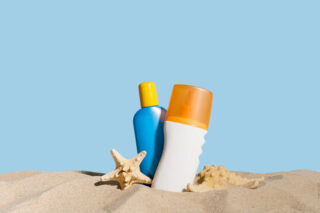
Beat the heat and safeguard your skin from harmful UV rays with sun protection essentials. Don’t forget to pack sunscreen with a high SPF, sunglasses to shield your eyes, and a wide-brimmed hat for added protection. Additionally, lip balm with SPF and aloe vera gel can provide relief from sunburns and keep your lips hydrated.
Lightweight Clothing Options:

Embrace the spirit of summer with lightweight and breathable clothing options that keep you cool and comfortable on your travels. Pack versatile pieces such as cotton shirts, shorts, flowy dresses, and swimsuits for beach outings. Opt for wrinkle-resistant fabrics to minimize the need for ironing and save space in your luggage.
Hydration Essentials:

Stay hydrated on the go by packing a reusable water bottle in your travel bag. Fill it up whenever you have access to clean drinking water to quench your thirst and reduce plastic waste. Consider packing electrolyte packets or tablets to replenish lost minerals during outdoor activities or hot weather.
Travel-Friendly Toiletries:
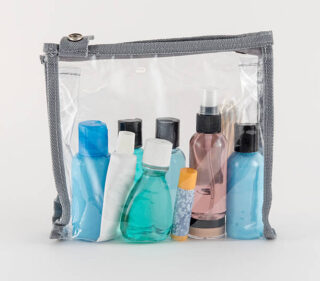
Travel toiletries in clear plastic, quart-sized bag on white background
Streamline your toiletry bag with travel-sized essentials that meet TSA regulations and save space in your luggage. Pack items such as shampoo, conditioner, body wash, toothpaste, and moisturizer in leak-proof containers. Don’t forget to include a compact travel towel and wet wipes for quick refreshment on the go.
Tech Gadgets and Accessories:
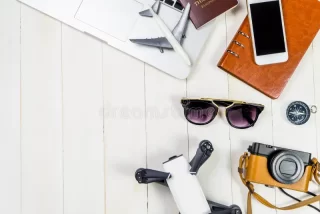
Capture unforgettable moments and stay connected with essential tech gadgets and accessories. Pack your smartphone, camera, or GoPro along with chargers, power banks, and adapters for international travel. Consider investing in a lightweight and portable Bluetooth speaker for impromptu beach parties or outdoor picnics.
First Aid Kit and Medications:
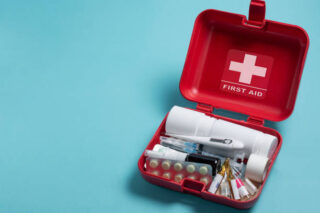
Home first aid kit on a blue background. The elements of the first aid kit are laid out on the table.
Be prepared for minor emergencies and health-related issues by packing a well-stocked first aid kit in your travel bag. Include items such as adhesive bandages, antiseptic wipes, pain relievers, antihistamines, and motion sickness tablets. Don’t forget to pack any prescription medications you may need during your trip.
With these essential items packed in your travel bag, you’re ready to embark on a summer adventure filled with unforgettable experiences and cherished memories. From sun protection essentials to tech gadgets and first aid supplies, being prepared for every situation ensures a smooth and enjoyable journey wherever your travels may take you. So, grab your bags, soak up the sun, and let the summer adventures begin!
-

 Style11 months ago
Style11 months agoBridal Guide : Best Looks of Radhika Merchant Ambani
-

 Fashion1 year ago
Fashion1 year agoMost Discussed Ajrakh Saree of Alia Bhatt
-

 Entertainment1 year ago
Entertainment1 year agoThe Most Stylish Guests of Bhagya Suresh Reception
-

 Entertainment1 year ago
Entertainment1 year agoBridal Bliss : All Bridal Looks of Swasika Vijay
-

 Movies1 year ago
Movies1 year agoA Nostalgic Journey Through Love &Cinema : Best Bollywood Romantic 90s Movies
-

 AD8 months ago
AD8 months agoPopular Curtain Fabrics to Consider for Your Home
-

 Fashion1 year ago
Fashion1 year agoMajor Denim Trends You Need To Know in 2024
-

 Events9 months ago
Events9 months agoBest of Fashion Looks : Diya Krishna Wedding

